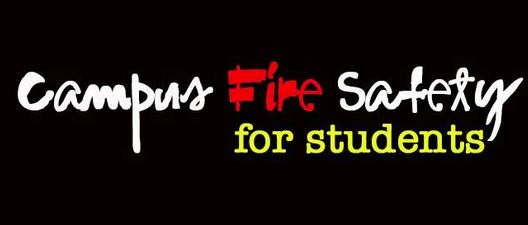
Each year college and university students, on and off campus, experience hundreds of fire-related emergencies nationwide. There are several specific causes for these fires, including cooking, intentionally set fires, and open flames, but most are due to a general lack of knowledge about fire safety and prevention.
To raise awareness of this potentially deadly issue, Governor Dannel P. Malloy has proclaimed September ‘Campus Fire Safety Month.’
“The new school year is exciting, filled with opportunities for learning, and also some dangers. It is important for all students, whether they reside at home or on campus, to be aware of fire hazards and the preventive measures that could save their lives and others,” said DESPP Commissioner Dora B. Schriro.
”Working smoke and carbon monoxide detectors, adequate and clearly marked exits, escape planning and safe cooking practices are the best ways to keep college students safe from fire,” said State Fire Administrator Jeffrey Morrissette.
DESPP recommends following these campus fire safety tips:
Smoke Alarms and Carbon Monoxide Detectors
- Test all smoke alarms and carbon monoxide detectors at least once a month.
- Replace all smoke alarms when they are 10 years old.
- A smoke alarm should be on the ceiling or high on a wall. Keep smoke alarms away from the kitchen to reduce false alarms. The smoke alarm should be at least 10 feet (3 meters) from the stove.
- If the carbon monoxide alarm sounds, immediately move to a fresh air location outdoors or by an open window or door. Make sure everyone who was inside the home is accounted for. Call for help from a fresh air location and stay there until emergency personnel arrives.
Candles
- Avoid using lighted candles.
- Do not leave lit candles unattended.
- Keep candles away from draperies, linens and paper goods.
- Cook only where it is permitted.
- Keep your cooking area clean and uncluttered.
- If you use electric appliances, don't overload the circuits.
- Never leave a lit stove unattended.
- If a fire starts in a microwave, keep the door closed and unplug the unit.
- If a grease fire starts in an open pot or pan, place the cover on the pot or pan as quickly as possible. Do not attempt to extinguish the flames with water.
Smoking
- If you smoke, smoke outside.
- Make sure cigarettes are extinguished and that the ashes are out. Never toss hot cigarette butts or ashes in the trash can.
- Be alert - don't smoke in bed!
Escape Planning
- Don’t delay your escape and never re-enter the structure once you are out.
- If you have to escape through smoke, get low as close to the floor as possible and go under the smoke to your exit.
- Before opening a door, feel the door. If it's hot, use an alternate egress.
- Use the stairs; never use an elevator during a fire.
- If you're trapped, call the fire department (911) and tell them where you are. Seal the door with rags and signal for help from the window. Open windows slightly at the top and bottom; shut them if smoke rushes in from any direction.
- If you have a disability, alert others of the type of assistance you may need to leave the building.
The Connecticut Fire Academy is the teaching arm of the Connecticut Commission on Fire Prevention and Control, a Division of the Department of Emergency Services and Public Protection. Their mission is to serve as the primary source of education and training for Connecticut firefighters.